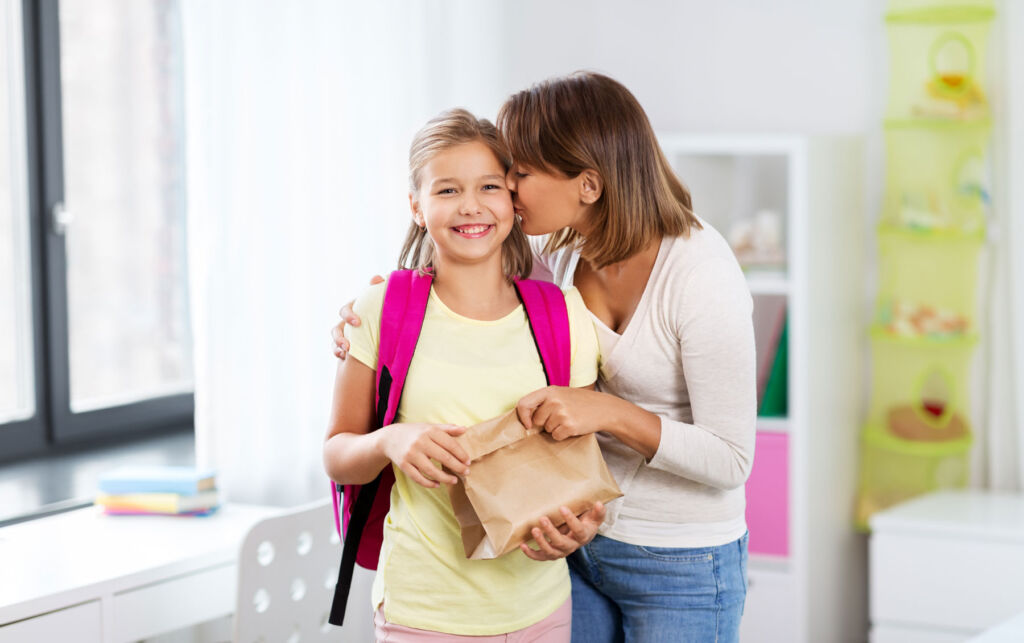

With the summer holidays coming to an end, it’s nearly time for children to go ‘back to school’. Amidst the excitement of starting a new school year, it is important that children have and maintain a healthy, balanced diet.
Eating the correct foods via a balanced diet helps ensure that children get all the nutrients they need for their growth and development; it is also an ideal way to help children develop healthy habits.
To help families prepare for the ‘big day’, the British Nutrition Foundation has provided some excellent ways to make healthy eating easier, ensuring that September school routines start on the right footing.


Breakfast – be prepared!
Mornings can be super-stressful, trying to get everything organised to get out the door on time. Anything you can do to set up a healthy breakfast beforehand can help. You could put cereals, toast toppings and fresh or dried fruit out first thing or even the night before so that children can serve themselves as soon as they are ready.
You could prep the night before by making some overnight oats that can be kept in the fridge, ready to be served at breakfast time.
Lunches – find your balance.
If you’re making a packed lunch, it’s all about balancing the main food groups. You can include:
- Starchy food like bread, pittas, wraps, couscous, pasta or rice – go wholegrain if you can.
- Protein from foods like beans, lentils, fish, eggs and meats.
- Vegetables such as cherry tomatoes, carrot sticks or peppers and some fruit.
- Dairy or alternatives as a snack, such as cheese or yoghurt or milk as a drink.
Hydrate
Children need about 6-8 drinks daily, and water and milk are the best choices as they don’t contain free sugars. You can offer juices and smoothies, too, but it’s best to have no more than one small glass (150ml) a day because they contain sugars and can be acidic. Reusable water bottles are great for children to take to school to have water throughout the day.
Snack smart
Young children have small stomachs, so healthy snacks between meals can help add essential nutrients. Stock up on healthier options so that you have something on hand to help resist the pestering power of sweets! You could try fresh fruit, cheese balls, mini sandwiches, wholegrain crackers or fruit loaf.
Eat together
As a parent or carer, you are your young child’s most important role model. Eating together is an excellent opportunity to show children how to eat well, not just tell them! It’s not always easy if you have a hectic after-school schedule, but making some time during the week to eat together without distractions like TV or phones is an ideal way to support healthy eating as a family.
Plan ahead
You can also try meal planning for the week. Organising beforehand can help; working out and setting aside the ingredients makes it easier to create a variety of foods during the week.
If you’d like to learn more about which foods you should be giving your children, the British Nutrition Foundation website offers a huge amount of advice. If you’d like some instant inspiration and guidance, an excellent place to start is its 7-day meal planner.
Remember, healthy eating does not need to be hectic and time-consuming. Making consistent, realistic and easy daily dietary decisions can make a big difference in our overall health and well-being.
Read more health news, guides and features here.
